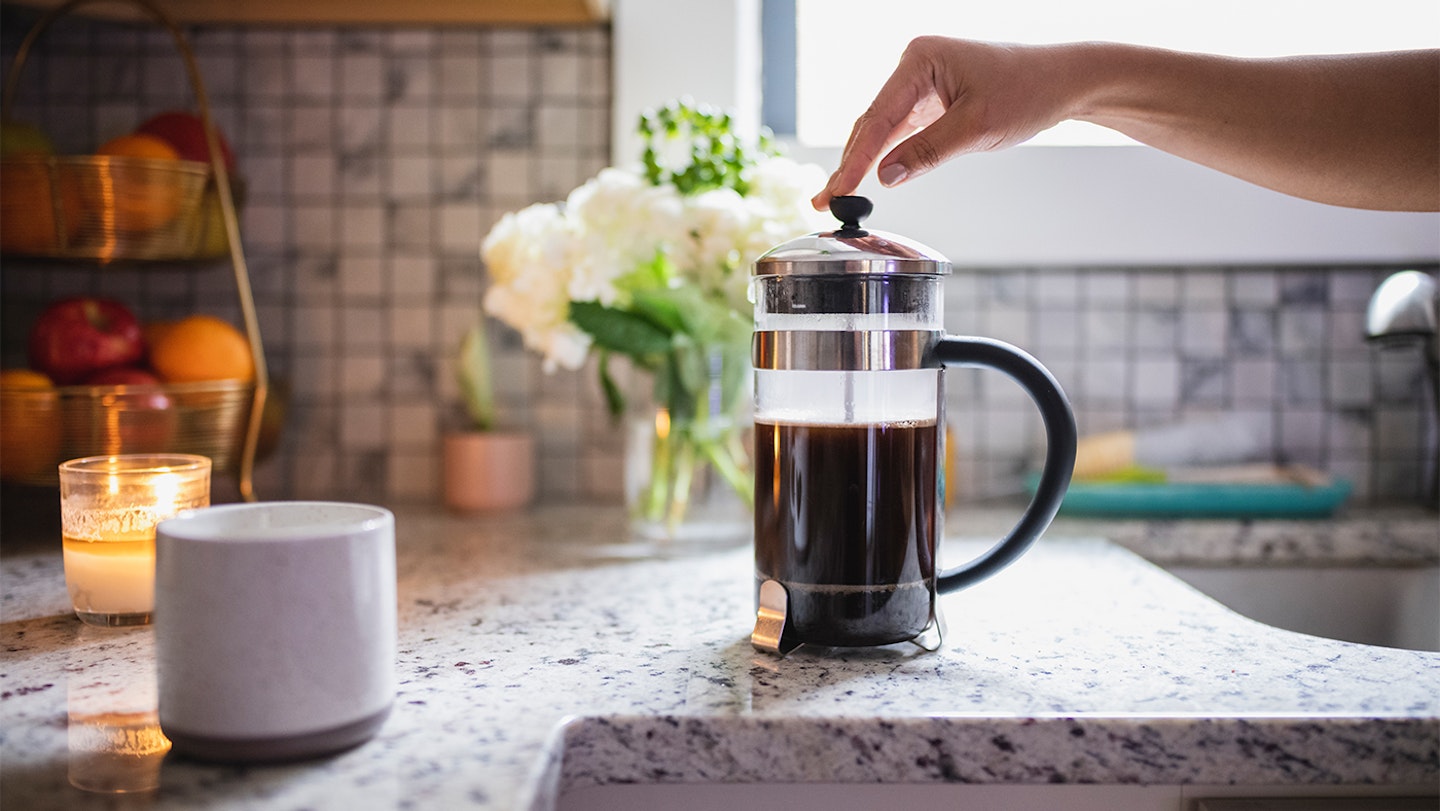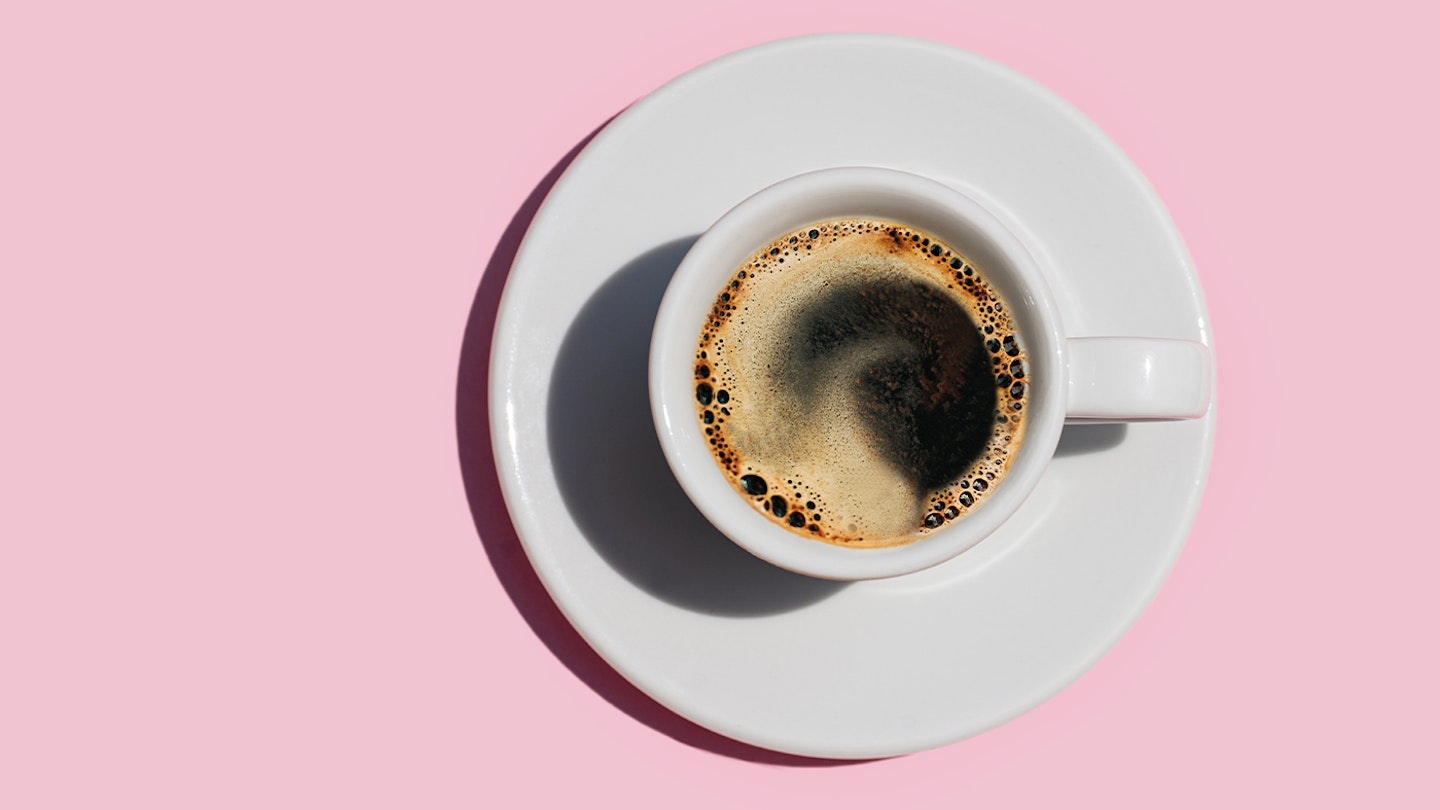If you're trying to justify an investment of one of the best coffee machines, you'll probably be pleased to hear about black coffee benefits.
While there's nothing like a frothy cuppa to start your day, (made easy by those wonderful coffee pod machines), swapping your milky beverage in exchange for a black coffee is a good switch to make for your health. Black coffee benefits include lower calories, improving brain health and potentially even helping prevent cancer.
If you're keen to know more about black coffee benefits, we've rounded up the best way to make it without a bean-to-cup coffee machine, along with its nutritional values and also some of its health benefits.
What is black coffee?
Black coffee is the base of any coffee drink before milk is added. It's made from roasted coffee beans which are firstly ground, soaked in water to release flavour, caffeine and nutrients before being mixed with water for a hot drink. It can alternatively be served over ice for a cool drink too.
Like most caffeinated drinks, black coffee is mostly enjoyed in the morning as the caffeine can help you feel more awake. It's not advised you drink caffeine drinks after midday, especially if you struggle to sleep as it can keep you awake.
Black coffee has a very bitter taste, which is why many people add milk, cream, sugar, sweetener or a syrup or honey to ease the bitter flavour. If you're keen to keep your coffee black, however, we would recommend trying a range of coffee beans and grounds from different places in the world. How the coffee is roasted and where the beans originate can have a real impact on the taste of your black coffee, so it's definitely worth trying a variety to help you find one you like the taste of.
How to make black coffee

Black coffee is made from ground coffee beans and water. It can be made a variety of ways depending on what you have in your kitchen.
Bean to cup
If you have a bean-to-cup coffee machine, simply add your coffee beans in to the machine where the beans will be ground, blended with water and dispensed into your cup in the form of an espresso shot. This is probably the method they're using at your favourite coffee bar.
Drip coffee
Using a paper filter over a cup or pot, place the grounds in the filter and pour hot water over the grounds. If you haven't got grounds and need to grind your beans, you'll need to buy a coffee grinder to make the grounds.
Coffee press
This popular way of making coffee is by using a pitcher and leaving the coffee grounds and hot water for a few minutes before using the plunger to push down the grounds while keeping the brewed coffee at the top.
Coffee pods
If you have a coffee machine at home that uses pods, you can use espresso coffee pods or capsules instead of ones that need milk for a black coffee.
Two chamber pot
Place your coffee grounds and water in the bottom part of the pot and pop it on the stove. As the water boils, it's forced up through the coffee grounds and collects in the upper chamber ready to be poured into your cup or favourite reusable cup.
Instant coffee
The easiest way to make black coffee is by using some instant coffee with hot water straight in your mug.
Iced coffee
Whether it's a really hot day or you just fancy a change, add some ice cubes to a glass and pour over your brewed coffee.
How nutritious is black coffee?
While the nutritional values can vary slightly depending on brew time, one 240ml cup of black coffee contains:
Fat: 0g
Protein: 0g
Calories: 2
Carbs: 0g
Fibre: 0g
Caffeine: 96mg
It also contains Vitamin B2 (Riboflavin), Vitamin B3 (Niacin), Vitamin B1 (Thiamine) and potassium.
Black coffee benefits
Could help prevent cancer
Some studies have found that drinking coffee may lower the risk of some kinds of cancer including liver, endometrial cancers and colorectal cancer.
Brain health
Many researchers have speculated that black coffee could protect our brains against developing Alzheimer's as caffeine is considered a brain-enhancing substance for mental performance. One study did find an association between coffee intake and a reduced risk of Alzheimer's.
Could delay the progression of Parkinson's
One study of 360 people even found that coffee could protect against the progression of Parkinson's too, helping delay the cognitive decline.
Mood boosting
If you're one of those people who can't function without their cup of coffee first thing in the morning, you'll understand how mood-boosting it can be.
A study of 59 adults found that coffee boosted alertness and decaf coffee may also have a similar placebo effect, good news for those who are keen to cut out caffeine.
Helps decrease headaches
Not only can tiredness be decreased with black coffee, but a cup of black coffee could help reduce headaches more than decaf coffee does.
May reduce the risk of type 2 diabetes
So long as you're not putting sugar in your coffee, a few cups of coffee per day could help prevent type 2 diabetes.
A large study found that people who never or rarely consumed coffee had the highest risk of type 2 diabetes whereas the risk decreased with each additional cuppa.
Weight loss
Ditching the milk could also have weight loss benefits. Black coffee may also help boost your metabolism, helping you burn fat quicker.
Lorna White is a Senior Digital Writer at Yours.co.uk. She was previously a writer at Yours Magazine writing features and news stories before joining the digital team. Lorna loves the great British countryside and likes to spend her spare time out and about in her home of Nottinghamshire walking her dog, Pippin.

